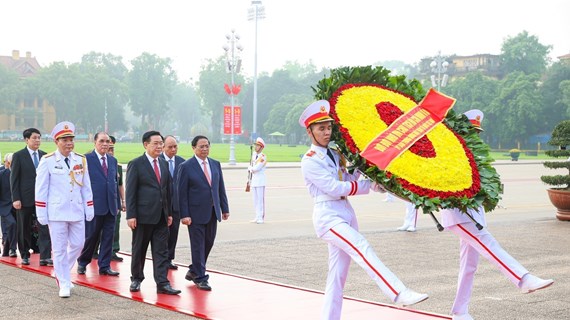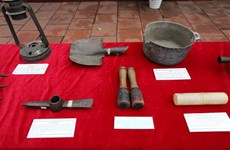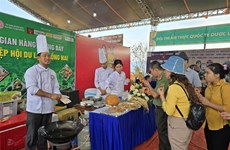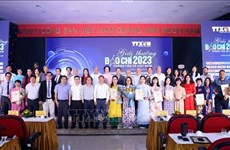Hanoi recognises first new rural district
Deputy Prime Minister Vu Van Ninh on October 28 presented a certificate recognising Dan Phuong as the first new rural district in the capital city of Hanoi.
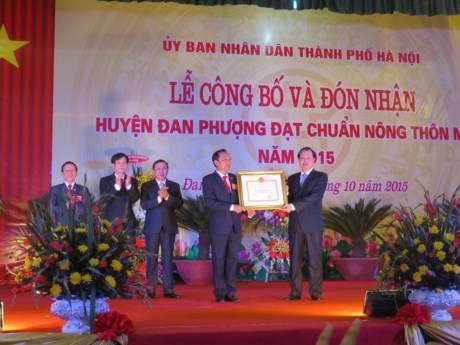 Deputy Prime Minister Vu Van Ninh (R) grants certificate recognising Dan Phuong as first new rural district of Hanoi (Photo: VNA)
Deputy Prime Minister Vu Van Ninh (R) grants certificate recognising Dan Phuong as first new rural district of Hanoi (Photo: VNA)Chairman of the district’s People’s Committee Nguyen Huu Hoang said Dan Phuong is one of the 10 districts nationwide recognised by the Prime Minister as a modern rural areas.
The district has seen a facelift after implementing the Government’s new-style rural building programme, he said, pointing to the expanded transport system, upgraded houses and synchronous planning of urban areas, craft villages and small industrial and handicraft clusters.
It has converted rice cultivation to growing other crops that have higher economic value such as flowers and fruits on over 700 hectares of rice land, helping increase the value of agriculture cultivation by 160-250 million VND (7,200 USD-11,250 USD) per hectare.
The district features six industrial and small handicraft complexes and is home to over 500 small- and medium-sized businesses, drawing around 6,200 workers with average incomes of 26.5 million VND (1,192 USD) per person per year.
Over the past four years, the district has invested in building six inter-communal routes and nearly 150 kilometres of roads with total investments over 450 billion VND (20.25 million USD).
Deputy Prime Minister Vu Van Ninh, who is also Head of the Steering Committee for the national target programme on building new-style rural areas, hailed Hanoi and Dan Phuong in particular for their achievements in the field.
From 2011-2015, the capital recorded an average economic growth of 9.23 percent, above the national average and contributed one eighth of the country’s gross domestic product (GDP).
Hanoi leads the country in the number of new rural communes with 129 out of 386 communes fulfilling all criteria of the programme, he noted.
However, he urged the capital to build on its achievements and strive to recognise 75 percent of its communes as new rural ones by 2020.
Additionally, the city should push ahead with developing hi-tech agriculture, duplicating connectivity models and promoting the application of science-technology in processing and production to bring higher economic values.
It is also necessary to integrate new rural building into other socio-economic development programmes such as trade and investment promotion, agricultural restructuring, job creation and sustainable poverty reduction, he concluded./.





